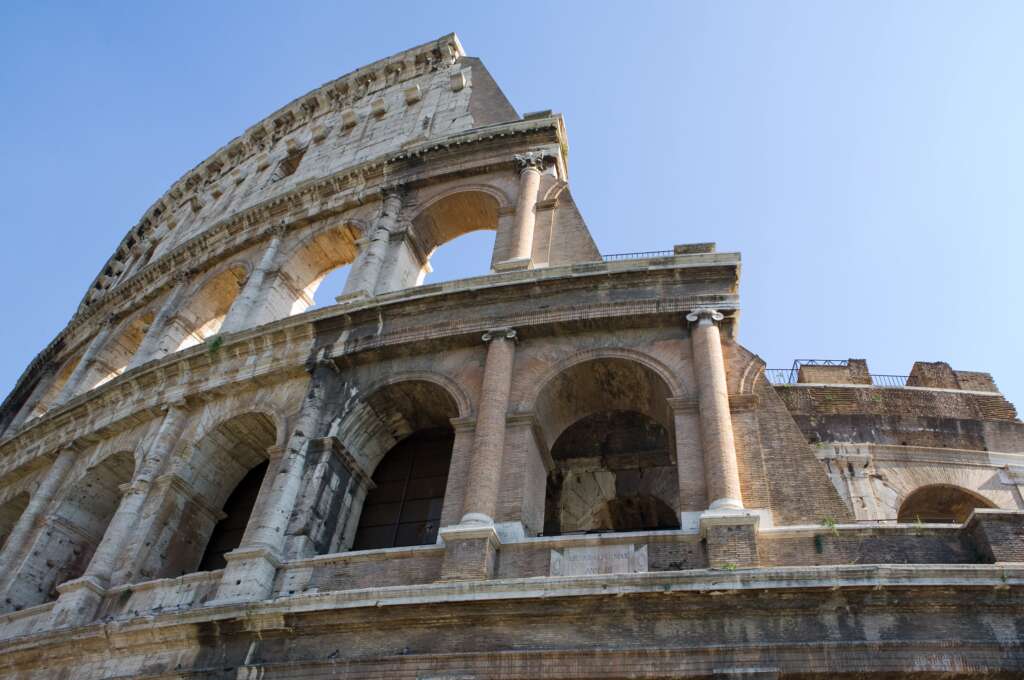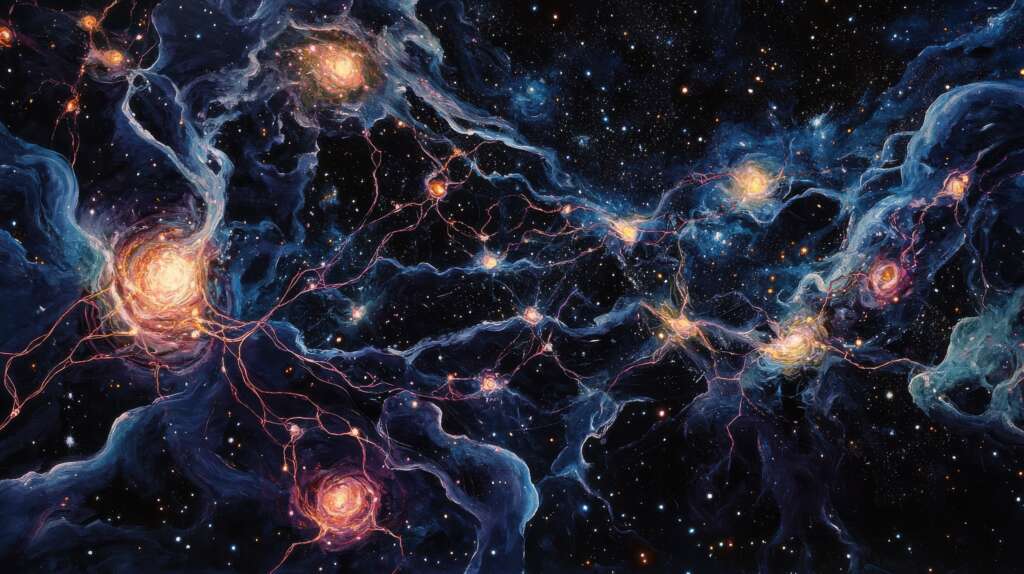We all reach a point where we wonder “What is this all for?” The word “this” can mean any one of a number of things. “This” can mean trying to buy your first home and being priced out of the market. “This” can mean trying to keep your kids off the street with mixed success. It can mean finishing your college degree and not finding a job. Or, “this” can mean trying to save your marriage, or staying sober, or working your entire life just to see everything you’ve accumulated blown or washed away in a storm. Now you see it, now you don’t. How cruel is that?! Sometimes, all it takes is ten minutes (or less) before your home winds up in the next county. You wonder whether the world, or your neighborhood or family is any better off for you being born. What do you have to show for your life? Who will cherish your memory when you are gone?

The same is true for empires. Most of the Seven Wonders of the world have disappeared. The famous lighthouse of Pharos, as high as a football field is long, functioning in Christ’s time was destroyed by earthquakes as was the Colossus of Rhodes. Are we any better for them? Does anyone remember them yet alone miss them? Then there was ancient Rome. Roman roads are still in use, but their buildings lie in ruins. The monuments of the Thousand Year Reich were pummeled to dust by Russian artillery, only fourteen or so years after conception. Babylon, the Incas and the Mayan civilizations, the British Empire all cease to exist as well. Every civilization in history has fallen or is a state of disrepair. Is the United States the next empire to crumble? Will you be a witness to this?
LIONS AND TIGERS AND BEARS (OH! MY!)
The world and our nation are going through troubled times. Russia is coming to the end of the second year of war waged against the sovereign nation of Ukraine. Instead of winning it in a matter of weeks, President Putin now must deal with the humiliation of having more than 1,200 square kilometers of Russia occupied by Ukraine. Putin’s immediate reaction is to threaten NATO and America with nuclear war as he has in the past.
Meanwhile, Israel over the last twelve months has been attacked by terrorist groups in Gaza, Lebanon, and Yemen, plus the nation of Iran (repeatedly.) The Jews, persecuted over and over throughout the centuries want only one place in the world where they can be safe. Just one small scrap of land. This desire is one of the underlying dreams of Zionism. Israel in terms of recognized territory (22,145 square kilometers), is actually smaller than the state of New Jersey. Is it too much for the 193 nations in the UN to grant Israel that security? A home of their own?
Then, there is the U.S. Presidential election.
CHASING THE WIND
Solomon said in Ecclesiastes 1:14: “I reflected on everything that is accomplished by man on earth, and I concluded: everything he has accomplished is futile — like chasing the wind!”
How, if at all, has American made things better for the world? What difference did the sacrifice of our troops and treasure in Vietnam (58,220 U.S. servicemembers killed), in Iraq (4,424 U.S. servicemembers killed) and in Afghanistan (1,833 U.S. servicemembers killed) make? Did it make a difference to America or the people who live in those countries? Vietnam fell to communism, anyway. The Taliban is back in power with a vengeance and Iraq is governed by a regime that is not particularly friendly to the U.S. The more things change, the more they stay the same.
BUT LET’S TALK ABOUT YOU
You can be easily forgiven if you feel depressed; you are not alone. As my mother used to say “Misery loves company.” There is so much to process and so much “gloom and doom” in the air today.
Take politics as just one example. The American Psychological Association (APA) warns us about the stress involved in the topic of political news alone. So, let’s just look at that one facet. People suffer anxiety, insomnia, anger and arguments, being lied to and so on over politics. The APA says this stress can be devastating, and that:
“Across three separate surveys, 1 in 20 people also reported being so distressed about politics that they had suicidal thoughts.”
This same article quotes Brett Ford, PhD, an associate professor of psychology at the University of Toronto who studied the link between emotions and political engagement:
“Politics is a stressor that’s complicated and multifaceted, Ford said, partly because it can trigger such a wide variety of emotions, ranging from worry, sadness, and despair to outrage, disgust, anger, frustration, and more. Political events can have both short- and long-term repercussions, and they often involve conflict between groups, which can have real-life social ramifications.”
Of course, it doesn’t end here with politics. We have the rising cost of living which people are reminded of every time they fill their gas tanks, or buy a dozen eggs, or try to scratch together the next month’s rent. Then there are social stressors today, such as migration, trans-rights, school shootings and so on. Nature, itself, seems out of control. Land is being scorched by fire one minutes or washed away by the storm surges in another. Crime . . . Eighteen hour waits in the Emergency Room before you can be seen . . . Long commutes in slow traffic. You get the drift.
DUST
One of the most common things a minister or priest or rabbi might say at a funeral is “Ashes to ashes, dust to dust.” But what does that mean exactly? It’s a reference to how we are born and how we die.

In Genesis 2:6 of the Bible, it says “And the LORD God formed[1] man of the dust of the ground, and breathed into his nostrils the breath of life; and man became a living soul.” The Hebrew word for “ground” is âdâm, or in English, Adam. Thus, Adam was not originally a proper noun. It would be akin to naming your Golden Retriever “Dog” instead of “Reggie” or “Molly.” Some translators used the term “molded” to describe how God formed man. The image of a person creating a coffee cup out of clay before firing it comes to mind. And the English equivalent for the Hebrew word for “dust” allows alternate interpretations from “red earth” to “humus” to “clay.” Now, it is not uncommon for particular soils to contain proteins and amino acids which are necessary ingredients for life. The structure of the verse(s) suggest that man was not created ex nihilo, but rather “made.” So, the building blocks of life were there already for God to use. The authors who wrote the Bible did not split hairs on this point of mud vs. dirt vs. dust because they were not composing a peer-reviewed article for a scientific journal. Perhaps dust—which is what every person is eventually reduced to—was chosen to “close the loop” or to indicate the need for humility.
This takes us to another point, made in Psalm 103, probably my favorite Psalm. David writes (in vv. 13-15):
“As a father has compassion on his children,
so the Lord has compassion on those who fear him;
for he knows how we are formed,
he remembers that we are dust.”
Hebrews 4:15 says (of Jesus) “For we do not have a high priest who cannot sympathize with our weaknesses, but One who has been tempted in all things like we are, yet without sin.”
Taken together with other verses, we can see God is a just, often stern, occasionally angry, but also a loving, tender and compassionate Being. He knows our weaknesses. The author of Hebrews says that Jesus was tempted “in all things” as we are. It doesn’t matter what it is that tempts you. It could be the temptation to quit or check out. Jesus had his own moment of temptation in the Garden of Gethsemane the evening before he was crucified. A person today could be addicted to crack, or porn. Or, he (or she) might have anger management issues, the inability to forgive (whatever!) Jesus understood the need to forgive, and so he forgave Ananias, Caiaphas, Pilate, Peter, and the Romans who mocked him.
The passage I’ve cited in Psalm gives us some context. It sets realistic expectations. I might have a son who can run a seven-minute mile (and were I in better shape and younger, I might be able to do likewise.) A seven-minute mile might be a reasonable expectation. But, I might have another son with a disability and who can’t come close to that time, though he tries with all his might to do so. Would I love him any less? That’s not to say that God has “different strokes for different folks.” Law applies equally to everyone. It doesn’t matter if you have an IQ of 160 or just plain 60. You’ll face the same punishment for a capital crime.
So, the point is not that we have a license to sin, but rather that we are encouraged by God to approach Him when we do sin. In Isaiah 1:18, God says “Come now, and let us reason together, saith the Lord: though your sins be as scarlet, they shall be as white as snow; though they be red like crimson, they shall be as wool.” Red. Crimson. Blood. In I John 1:9, John agrees: “If we confess our sins, he is faithful and just and will forgive us our sins and purify us from all unrighteousness.” But we must approach God. We must confess our sin and ask Him for forgiveness. Implied is our intention to do better next time, though God doesn’t keep score. Whether you sin once, or 490 times, or . . .God is ready to forgive you if you reach out to Him.
There are things that we can leave behind that make differences in the lives of people many years, even centuries after we’ve died. It might be a poem, or a song, an invention, perhaps a painting or some work such as Aesop’s Fables that bring as much joy to children today as they did 2500 years ago or more.
Death, like taxes, is inevitable. The material the earth and everything on it is made of material from the Heavens. You are literally formed from star dust. And your remains will decay or your ashes scattered until the day of resurrection.
UNTIL THAT DAY

God wants you to enjoy your life and to live abundantly. Life (and health) are precious commodities which can be foolishly squandered. People climb fences at zoos to get closer to the lions. At national parks, they feed the bears or disturb bison with calves. The may taunt the elephants causing some old bull to go on a rampage. In many such cases, the animal must be put down. In other cases, people deface ancient ruins by carving their initials on some irreplaceable artifact. Or, take selfies, for example. People die every month trying to get a perfect shot of themselves. This is narcissism at its very worse. According to Euronews:
“The selfie craze is now more lethal than shark attacks. A study published in the Journal of Travel Medicine in 2022 uncovered 379 selfie-related deaths over the previous 13 years.
Among these, 140 tourists tragically snapped their final photo. Meanwhile, only 90 fatal encounters during the same time frame involved sharks, primarily unprovoked.”
Then, there is suicide:
“The total age-adjusted suicide rate in the United States in 2021 increased to 14.0 per 100,000. In 2021, the suicide rate among males was 4 times higher (22.8 per 100,000) than among females (5.7 per 100,000).”
And it is not unusual for children as young as ten to take their lives.
Christians are not the only religion that believes in an afterlife. Our life on earth may only be one part of a journey. From heaven we came. On earth we lived, we laughed and we loved, and then at some point, sooner for some than later, we are called home. We can take an example from science.
THE COSMIC WEB

One of the more recent discoveries in science, the cosmic web, was only been discovered less than two decades ago. The appears to be a large “spider web” of dark matter connecting stars and galaxies in a way that suggests things are not quite as random as we once thought. It doesn’t take much of a leap to conclude that our planet, our solar system, and our galaxy are not isolated, insular objects, but rather small parts of a larger whole. That is the macro theory, anyway.
Looking at our microscopic world, we know that the nerve cells in our bodies are all interconnected with each other (similar to the cosmic web), and that every cell is important if the person is to function as designed. And here we are, in the middle of the two extremes. The philosopher John Donne once wrote “Any man’s death diminishes me, because I am involved in mankind . . .” Perhaps this is why we do–or should—feel a loss when someone we know or only hear about, suffers or dies. Like the deaths of children in a school shooting. Or when a colleague is killed in a car wreck. Or when our neighbor who is estatic about being pregnant with her first child suffers a miscarriage. The Bible tells us that God is afflicted by the afflictions of His people (Isaiah 63:9.) This is because just as our Earth is connected to our Sun, and our Sun is connected to our galaxy, and our galaxy to our universe in this immense cosmic web, we are in some sense connected to God and to each other. St. Augustine of Hippo once famously wrote in his Confessions “You have made us for yourself, O Lord, and our hearts are restless until they rest in You.” This restlessness is part of the life cycle and it serves a function. As an example, migratory birds such as geese get restless as summer ends and the autumn moon rises in the sky. People get restless as well as they follow their dreams.
We need to tap into this restlessness to see where it leads us. We need to stretch out our hands until they touch the hands of another, and they to another, linking us each to the Greater Whole in the universe. The multiverse. That “Whole” is God, and the door to that journey can be found in the Bible.
Here’s how to become a Christian.
In the late 1970’s, the American rock band Kansas recorded and released a song called “Dust in the Wind.” The song was one of the two most popular Kansas songs, ultimately receiving 3x platinum recognition. The lyrics of the song are based on several Old Testament verses, particularly Ecclesiastes 1:14 where Solomon writes:
“I reflected on everything that is accomplished by man on earth, and I concluded: everything he has accomplished is futile — like chasing the wind!”
According to Kansas musician Kerry Livgren who penned the lyrics:
“’Dust In the Wind’” was certainly the most well-known song, and the message was out of Ecclesiastes. I never ceased to be amazed at how the message resonates with people, from the time it came out through now. The message is true and we have to deal with it, plus the melody is memorable and very powerful. It disturbs me that there’s only part of the [Christian] story told in that song. It’s about someone yearning for some solution, but if you look at the entire body of my work, there’s a solution to the dilemma.”
Livgren believes that the solution to this dilemma is Jesus.
Kansas was not the first successful rock band to sing about scriptural themes. A decade early the Byrds recorded “Turn, Turn, Turn,” also based on the same book of the Bible.
FOOTNOTES
[1]From www.sefaria.org/Genesis.2.7 “God יהוה formed the Human *the Human I.e., the progenitor of the species and the point of origin for human society. Heb. ha-’adam; trad. “man.” In the eyes of ancient Israel, the typical initiator of a lineage was male, and so the first human being would also have been imagined as male. See further the Dictionary under ’adam. from the soil’s humus,soil’s humus Heb. ‘afar min ha-’adamah, rendered to emulate the wordplay with Heb. ha-’adam “the Human”; more precisely, “loose dirt from the soil.” NJPS “dust of the earth.” blowing into his nostrils the breath of life: the Human became a living being.”




